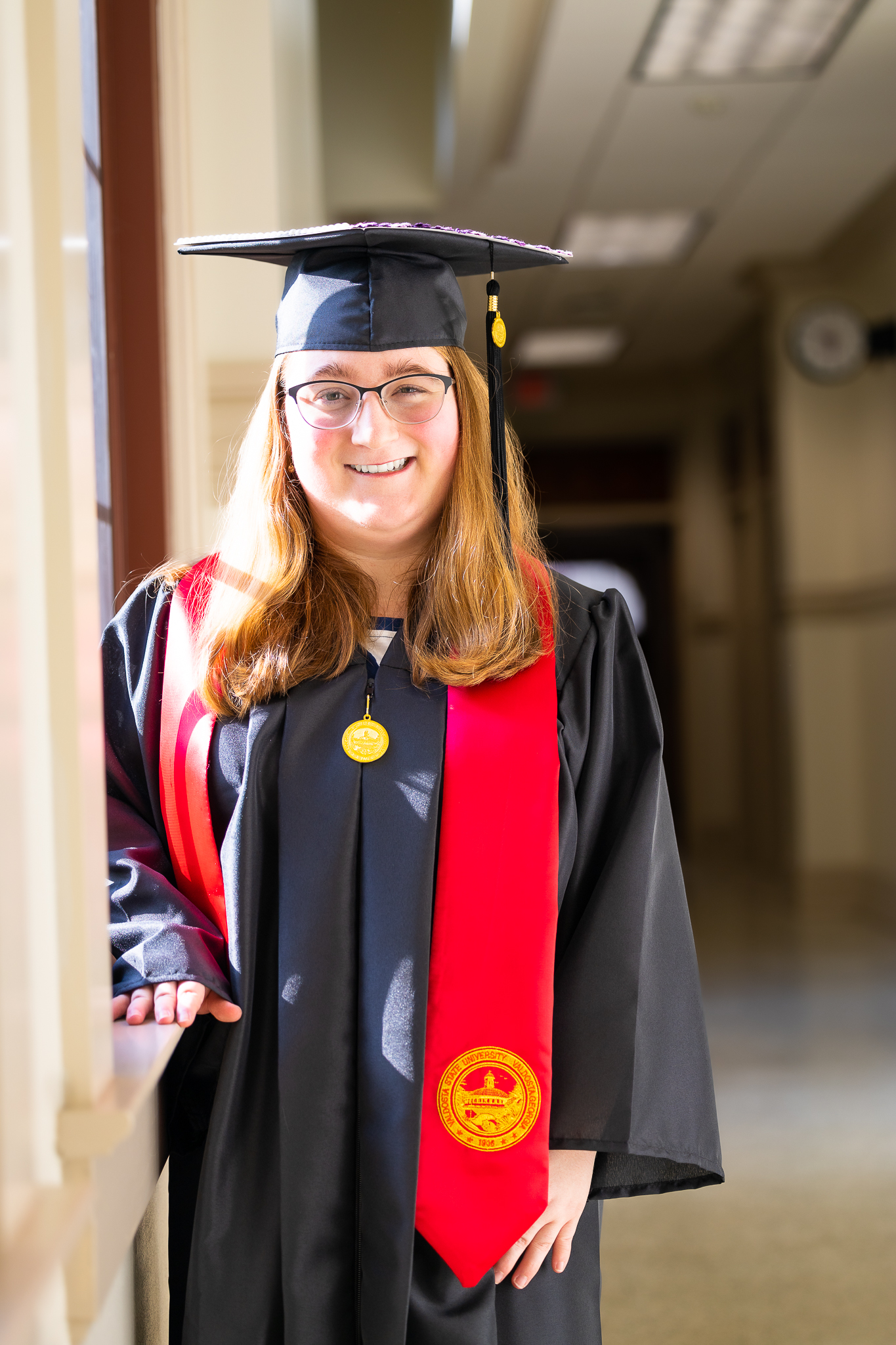
My Epilepsy, My Voice
This section of our site allows young adults to promote personal self-expression and share their journey of living life as a young adults with epilepsy or seizure disorder. We are happy to show our support to Isabella Schneider as she shares her journey and story.
My name is Isabella, and I was diagnosed with epilepsy when I was 23 years old. I also have spastic cerebral palsy, a neurological disorder that affects muscle movement and balance. I have had cerebral palsy my entire life. Yet, I did not know that people with cerebral palsy are more likely to get diagnosed with epilepsy at some point in their lifetime.
In May 2022, I graduated with my Bachelor of Arts degree in English with a minor in religious studies. I had accomplished so much during that final semester including balancing two on-campus jobs, an internship, and a full load of courses.
Outside of my academic career, I planned a right foot reconstructive surgery to happen in the summer after graduation. I figured if I was going to take a gap year anyway, I might as well take care of my health. I had other orthopedic foot surgeries done in 2020 and 2021 to correct deformities in both feet related to my cerebral palsy. Every surgery and recovery were straight-forward. Mentally, I had set expectations for myself of when I expected to be fully recovered. However, life had other plans.
I completed all the prior testing before surgery and got clearance from my general physician. July 22 couldn’t come soon enough. My doctor prescribed me gabapentin to help decrease my anxiety the day of surgery. I took it as prescribed six hours before my surgery time. I felt its effects quickly. My muscles relaxed and my balance increasingly became wobbly.
When I arrived at the surgery center, I could barely walk my legs were like Jello. I was determined to still get my “before surgery” photo in front of the building. Before I knew it, I was escorted back to the pre-op floor to get officially ready for surgery.
I changed into a surgical gown and waited in bed for the nurse to start my IV. I just looked at everything around me out of boredom. I heard a nurse speaking to another patient in the bed next to me about their procedure.
I woke up in an ambulance. I realized I never made it back to the operating room. I was mentally frustrated. I asked an EMT what happened. “You blacked out and had a 10-minute seizure. We’re on the way to the ER.” I knew immediately it was serious. Yet, I was frustrated and sad that this happened out of nowhere. I just had to face whatever happened next.
Arriving at the hospital my head hurt, and I felt nauseous. That day was a blur. The ER physician had me do blood tests and went over my medical history. They explained that the nurses at the outpatient center realized I had an absent seizure. Because I had no prior history of seizures, that was why I was sent to the ER. The doctor ordered blood tests, and the neurologist ordered a CT scan of my head.
When my parents arrived, they were just as scared as I was that something so serious happened. They told me it had not been more than 10 minutes after they left the building that they got a call about what had happened. I had my dad take a picture of me in the ER to show the “after” the seizure.
Later my bloodwork came with an elevated white blood count, and the CT scan came back with nothing significant noted in my head. However, because of the 10-minute seizure without prior history, it was of an epileptic nature of an unknown cause. I was discharged and prescribed Keppra to take until I followed up with a neurologist 2 weeks later. I left the hospital tired, nauseous, and wobbly. I eventually made it home and rested for a long time. My foot specialist followed up and reassured me that foot surgery could happen once my body was stable enough.
In hindsight, this day was a lot physically and emotionally. However, I knew I had to do some follow-up work to navigate the world of epilepsy. My care team and parents were supportive to help me navigate this new diagnosis.



Isabella Schneider